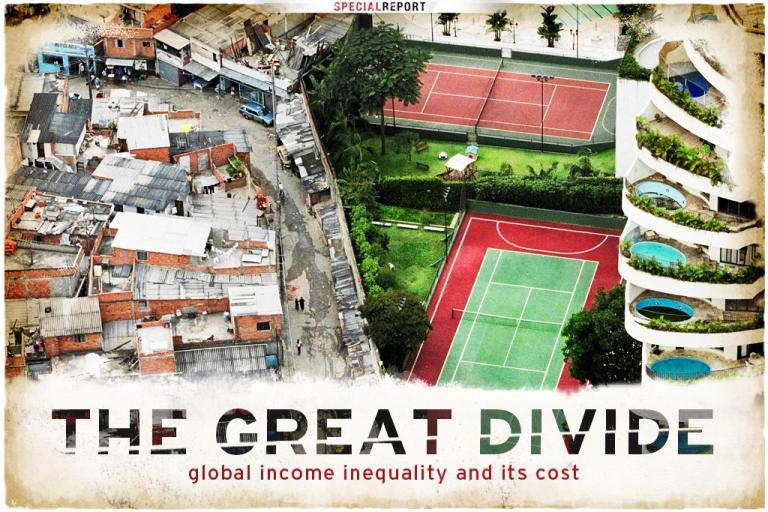The Great Divide: Methodology
The methodology for our economic analysis is based on what is known as the Gini coefficient, or the Gini Index, the most commonly used metric to gauge a society’s income inequality. On the Gini Index, zero equals perfect equality and one represents absolute inequality in which one person owns everything.
It takes its name from the early 20th century, Italian statistician Corrado Gini, who first developed the measurement.
And using this Gini Index, America as a whole has a degree of income inequality that is higher than almost any other developed country, according to the most recent data compiled by the Organization for Economic Cooperation and Development. According to the study, only Chile, Mexico and Turkey rank higher in inequality among the 34 members of the OECD.
Our US data comes from an analysis done by the University of Toronto's Martin Prosperity Institute, which crunched US Census Bureau figures from 2010 to find the Gini coefficient for each of America's 362 metropolitan areas.
We matched this US data against the most recent available Gini coefficients for countries around the world — as presented in the CIA World Factbook. Although this kind of comparison must leave room for error given the difference in population sizes, the results begin to shed light on what rising income inequality looks like around the globe.
This Special Report is being produced with support from Ford Foundation and in partnership with the VII Photo Agency. The compilation of US and global Gini coefficient data will be featured in an interactive map, a co-production of GlobalPost and the Pulitzer Center on Crisis Reporting.
More from GlobalPost: Special Report – The Great Divide
This story is presented by The GroundTruth Project.
We want to hear your feedback so we can keep improving our website, theworld.org. Please fill out this quick survey and let us know your thoughts (your answers will be anonymous). Thanks for your time!
